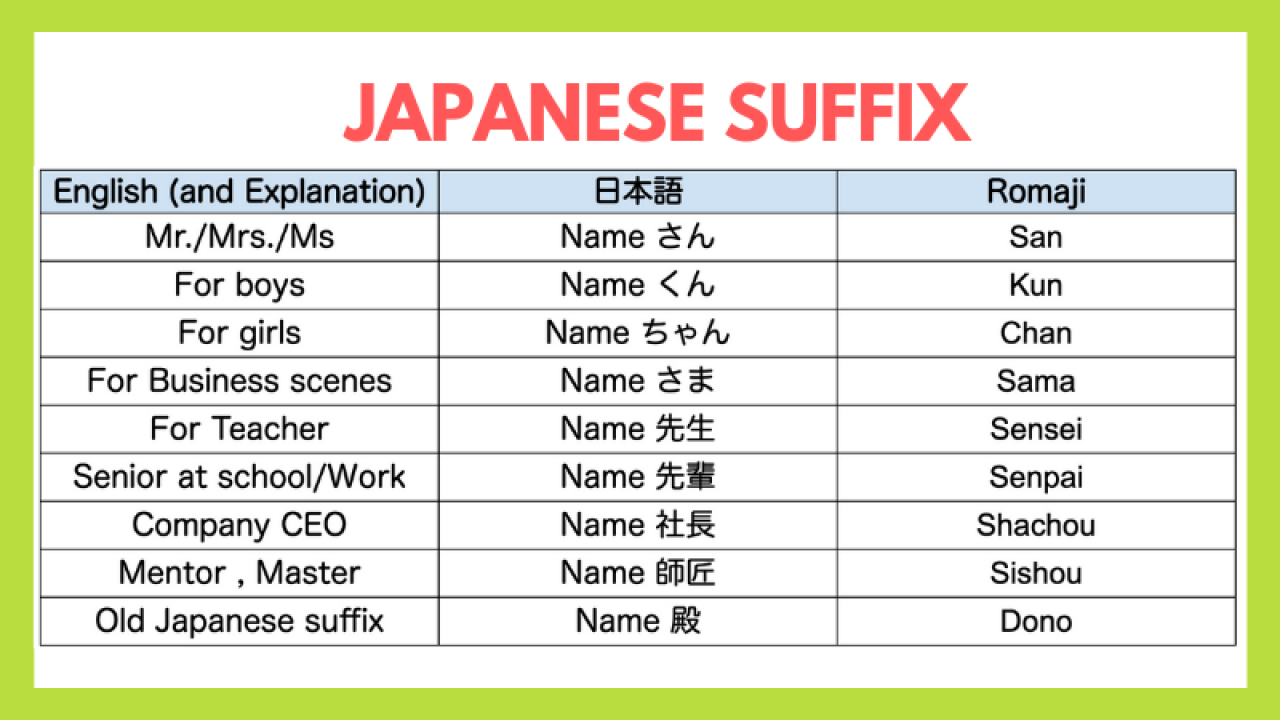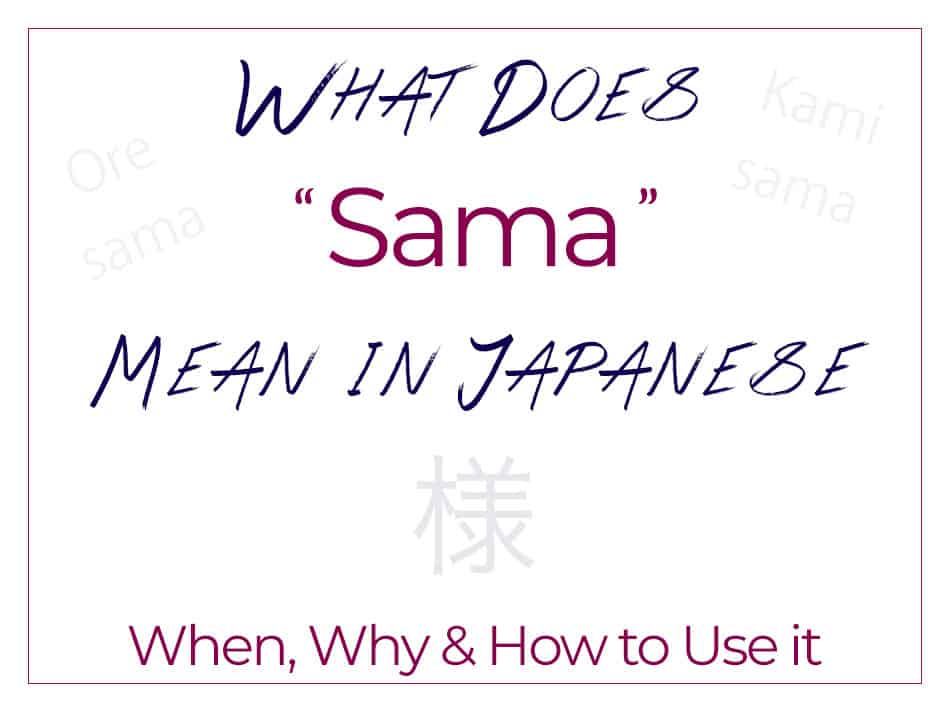Kun one the gender-associated honorifics. It's more casual san is typically for young teenage boys—"Shinji-kun!" "Kawaoru-kun!," example. .
 -sama used people have higher rank the speaker, we find in postal information, business mails, customer support, similar situations. daily conversation though, a bit rare hear. Kami-sama (meaning God) also written this suffix, if happen find who call "name-sama", shows arrogance.
-sama used people have higher rank the speaker, we find in postal information, business mails, customer support, similar situations. daily conversation though, a bit rare hear. Kami-sama (meaning God) also written this suffix, if happen find who call "name-sama", shows arrogance.
 Learn to honorifics Japanese, as san, kun, chan, senpai, sensei, sama dono. Sama a mark deference huge respect those high in society those a high status.
Learn to honorifics Japanese, as san, kun, chan, senpai, sensei, sama dono. Sama a mark deference huge respect those high in society those a high status.
 Whether they're king a feudal lord, must address with "-sama" attached the title. "-Sama" also to refer guests customers employees treat with respect. RELATED: 10 Anime Were Inspired Japanese Mythology. anime, characters use term "-sama" if aren't higher status.
Whether they're king a feudal lord, must address with "-sama" attached the title. "-Sama" also to refer guests customers employees treat with respect. RELATED: 10 Anime Were Inspired Japanese Mythology. anime, characters use term "-sama" if aren't higher status.
 The Meaning Sama (様, さま) all common Japanese honorifics sama (様, さま) the politest, respectful, most formal one. English, usually translates "Mr", "Mrs", "Miss", "Ms" (), are the translations for most common polite suffix san.Its meaning different, though.
The Meaning Sama (様, さま) all common Japanese honorifics sama (様, さま) the politest, respectful, most formal one. English, usually translates "Mr", "Mrs", "Miss", "Ms" (), are the translations for most common polite suffix san.Its meaning different, though.
 -Kun (くん), most commonly honorific anime. is to address young males. is used superiors inferiors male the age status. -Chan (ちゃん), frequently for girls between them, children, close friends, lovers. can used somebody finds person, pet, something .
-Kun (くん), most commonly honorific anime. is to address young males. is used superiors inferiors male the age status. -Chan (ちゃん), frequently for girls between them, children, close friends, lovers. can used somebody finds person, pet, something .
 Sama さま. use the word -sama the formal, is special. higher version -san used very specific situations people have high status, as customers the customer service industry, more commonly talking Japanese deities 神様 (kami-sama).
Sama さま. use the word -sama the formal, is special. higher version -san used very specific situations people have high status, as customers the customer service industry, more commonly talking Japanese deities 神様 (kami-sama).
 The case when new character shows up, refer an existing characters ~sama ~さま, causing surprise the rest characters. mentioned before, ~san ~さん common, in anime ~sama ~さま mostly by servants. if characters calls by ~sama ~さま, means they're servant. .
The case when new character shows up, refer an existing characters ~sama ~さま, causing surprise the rest characters. mentioned before, ~san ~さん common, in anime ~sama ~さま mostly by servants. if characters calls by ~sama ~さま, means they're servant. .
 Sama 様 a respectful suffix to refer people are superior you, as customers, masters, royalty, deities. Learn to it different contexts, examples, avoid confusion irony sarcasm.
Sama 様 a respectful suffix to refer people are superior you, as customers, masters, royalty, deities. Learn to it different contexts, examples, avoid confusion irony sarcasm.
 For customers (o-kyaku-sama). Kyaku means "customer." God (kamisama). alone refers one the gods various faiths. long time ago, women added sama addressing husbands (goshujin-sama).
For customers (o-kyaku-sama). Kyaku means "customer." God (kamisama). alone refers one the gods various faiths. long time ago, women added sama addressing husbands (goshujin-sama).
 What does kun, chan, san, sama, mean ? #shorts #shortsfeed #anime #
What does kun, chan, san, sama, mean ? #shorts #shortsfeed #anime #

